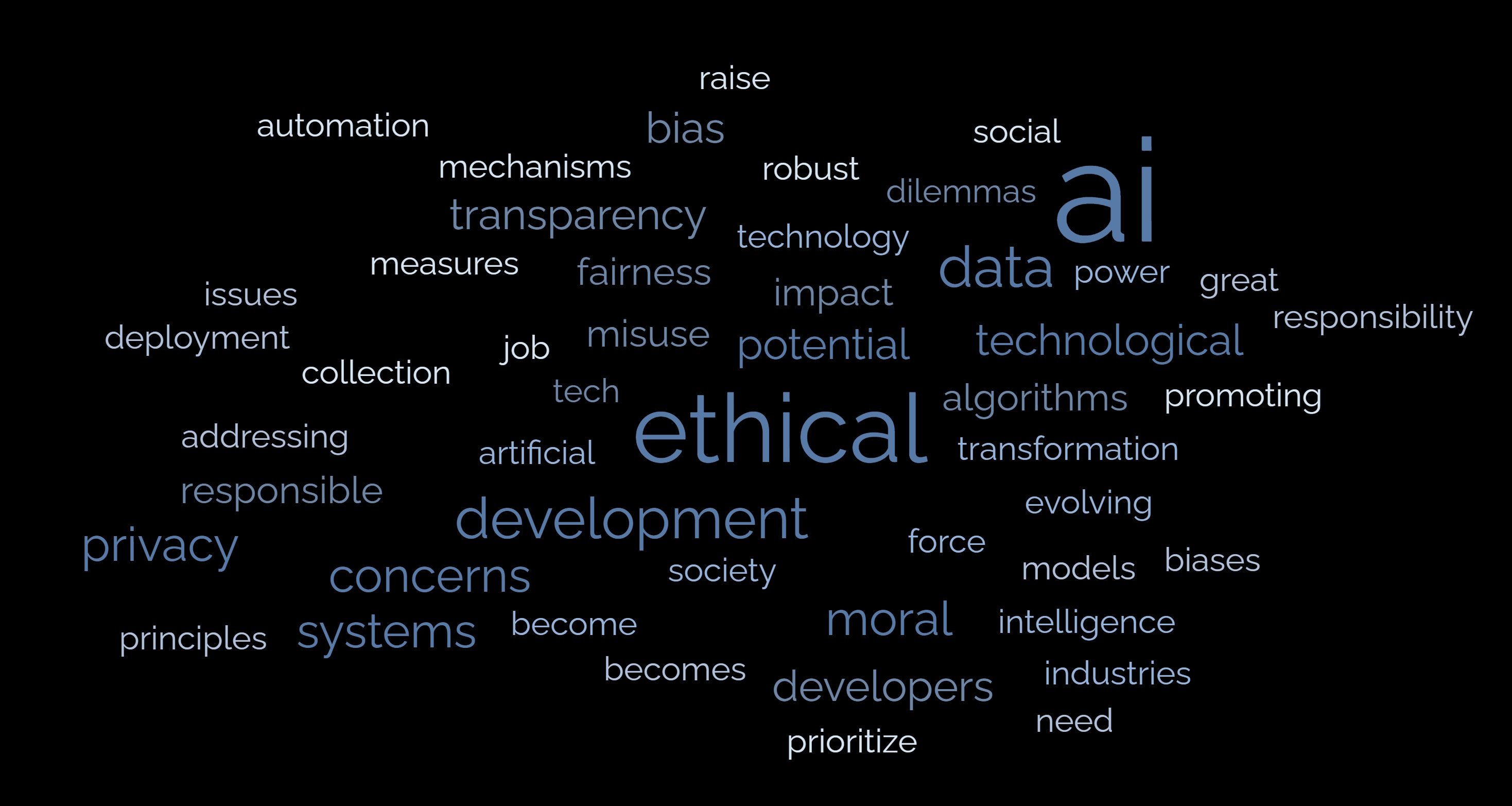Ethical AI: Navigating the Moral Dilemmas of Tech Transformation

Ethical AI: Navigating the Moral Dilemmas of Tech Transformation
Artificial Intelligence (AI) has become a revolutionary force in the quickly evolving technology landscape, with the potential to completely disrupt economies, society, and industries. But immense power also entails great responsibility. AI's ethical ramifications are coming to light more and more, which raises significant concerns about how we should handle the moral conundrums that come with the technological revolution. This article will discuss the need for responsible development as well as the ethical issues surrounding AI.
Understanding Ethical AI:
Ethical AI refers to the development and deployment of artificial intelligence systems that align with moral principles and values. As AI becomes more integrated into our daily lives, ethical concerns have grown in tandem. These concerns encompass a range of issues, including bias in algorithms, the impact on employment, privacy invasion, and the potential misuse of AI for malicious purposes.
Addressing Bias and Fairness:
One of the most pressing ethical challenges in AI is the presence of bias in algorithms. AI systems learn from historical data, and if that data is biased, the AI models can perpetuate and even exacerbate existing societal biases. Developers and data scientists must prioritize fairness and transparency in their algorithms, actively working to identify and eliminate biases that may lead to discriminatory outcomes.
The Social Impact of Automation:
The rise of AI and automation has the potential to transform industries and reshape the job market. While these technological advancements can enhance productivity and efficiency, they also raise concerns about job displacement and economic inequality. Ethical AI development requires a thoughtful approach to mitigate the negative social impact, such as investing in retraining programs and promoting the responsible adoption of AI in the workplace.
Privacy and Data Security:
The collection and analysis of vast amounts of personal data to train AI models raise serious privacy concerns. As AI systems become more sophisticated, the need for robust data protection measures becomes paramount. Ethical AI development demands a commitment to user privacy, with transparent data collection practices, secure storage, and mechanisms for informed consent.
Transparency and Accountability:
Maintaining transparency in AI systems is crucial for building trust among users. Developers should provide clear explanations of how AI systems make decisions and be accountable for any unintended consequences. The ethical framework for AI development must include mechanisms for oversight, accountability, and continuous evaluation to ensure responsible and fair use.
Guarding Against Misuse:
With great technological power comes the risk of misuse. Ethical considerations require developers and policymakers to anticipate potential abuses of AI and implement safeguards to prevent them. This includes robust cybersecurity measures, ethical guidelines for AI research, and international collaboration to establish ethical standards for AI development and deployment.
Conclusion:
As we stand at the intersection of technological innovation and ethical responsibility, it is imperative that we prioritize the development of AI that aligns with our moral principles. Ethical AI is not just a buzzword; it is a call to action for developers, policymakers, and society at large to shape the future of technology in a way that benefits humanity as a whole. By addressing bias, promoting fairness, protecting privacy, and fostering transparency, we can navigate the moral dilemmas of tech transformation and ensure that AI serves as a force for good in our rapidly evolving world.